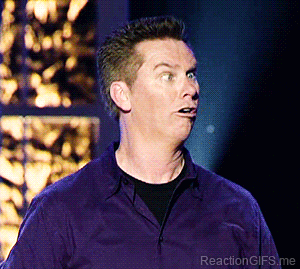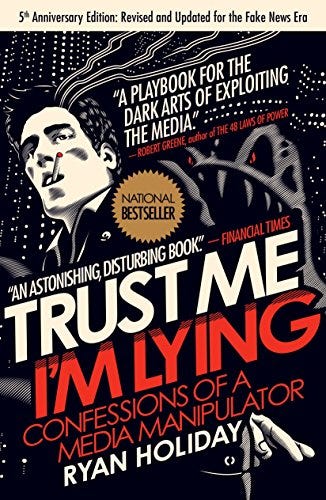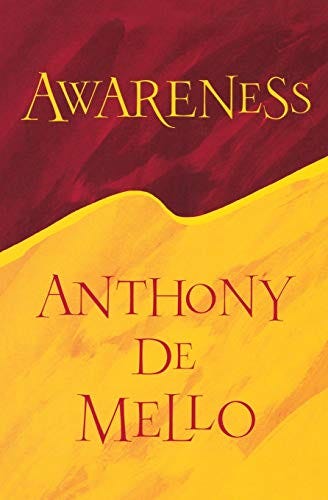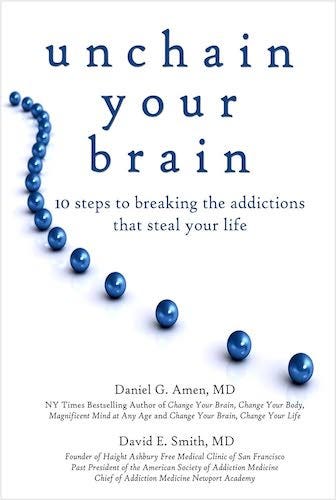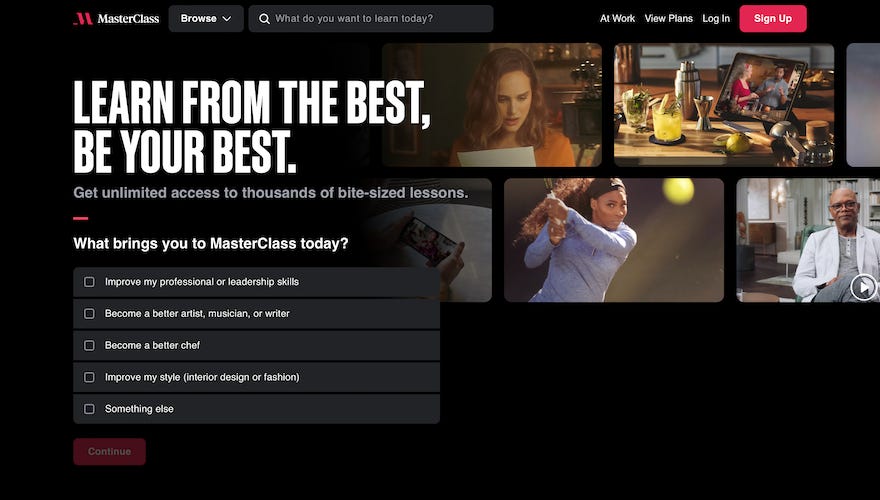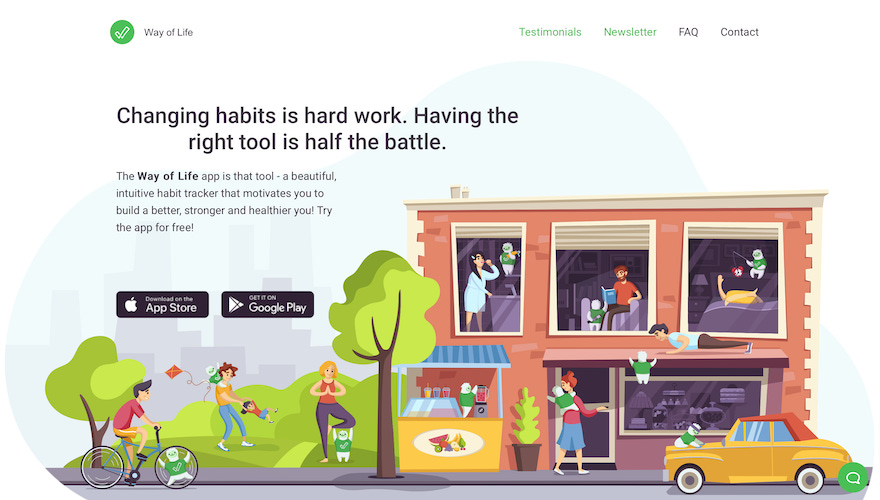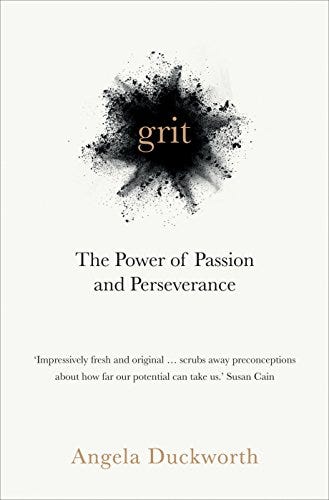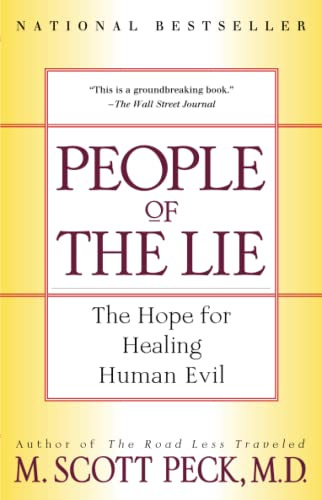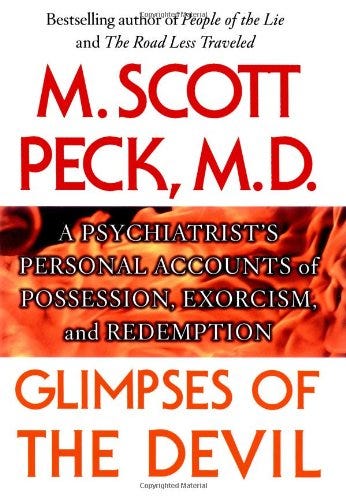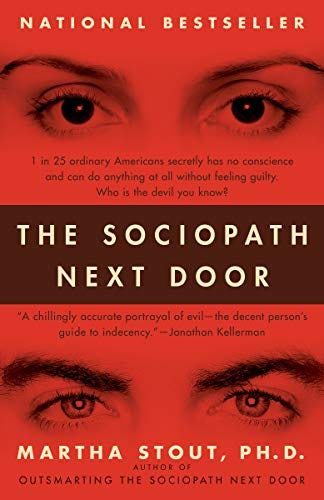Gardening Our Thoughts
We learn ways to improve our inner monologues including meditation, awareness, and neurolinguistic programming. This is part two of The Royal “We”. 🧘🪞
Monkey Mind
How often do you think about the words you hear in your head?
Do you ever have thoughts that don’t make any sense?
When you talk to yourself, are you nice or are you mean?
Do you ever get stuck daydreaming about a life that doesn’t exist?
How often do you lie to yourself? How do you know?
Does your inner monologue sound more like your mom or more like your dad?
Ever wish you could take a break from the voice inside your head? Isn’t that why we watch Netflix and TikTok?
Why are thoughts so difficult to control? At home, we get distracted by problems from work. At work, we get distracted by problems from home. Now that we carry the Internet around in our pockets, we get distracted by problems from all over the world.
So how do we manage the “monkey mind” that comes from all the distractions in life?We must learn to garden our thoughts.
I liken this process to gardening because like any good gardener I know I only have the perception of control over my garden. For example, my house is surrounded by several large oak trees that are illegal to cut down in my city. Their shadows dictate where the plants in my garden will grow. I planted a hedge of cherry laurels along my driveway for privacy, but they need constant trimming to stay out of my driveway. I planted colorful rose bushes along the street, but they need constant fertilizing to stay in bloom. I planted flower beds by my house, but they need constant weeding from all the trees. Keeping my garden healthy throughout the year BY DOING NOTHING is just as impossible as doing that with the thoughts in my mind.
So think of the mind as a “thought garden” that needs to be managed. Not all thoughts are the same:
Some thoughts come from our personalities, which are like the trees that can’t be cut down. We will talk more about those in part three, Flavors of Inner Monologues.
Some thoughts are easier to modify. They just need to be trimmed and fertilized to enable our success.
Some thoughts are like weeds. They need to be pulled up by the roots and tossed out for good.
This story will teach you how to identify your thoughts and give you the tools to manage each one.
Pausing Our Thoughts
To gain control of our thought gardens, we need to control how quickly the thoughts pop up, and the best way to do that is Meditation. Meditation means a lot of things to a lot of people, but it doesn’t have to be that complicated. Meditation can simply mean “not thinking”.
If you read our story on addiction, Partly Cloudy Brainstorms, then you already know the best way to master anything is to first master not doing it at all:
If you want to master talking, first master not talking.
If you want to master eating, first master not eating.
If you want to master drinking, first master not drinking.
If you want to master thinking, you must first master not thinking.
The best way to learn that skill is with a guide, so try an app like Headspace or Calm.
At first, you may only be able to pause your thoughts for ten seconds, but keep trying because it’s like riding a bike. Schedule a recurring appointment on your calendar a few times each week to practice and eventually you will be able to pause your thoughts for five minutes. Just imagine having five minutes of silence in your head whenever you want. See why the app is called Calm?
Mindfulness
Once you can pause your thoughts, each new thought will be that much easier “to garden”. Some thoughts need fertilizing, some need trimming, and some need pulling—so you need to start “thinking about thinking” if that makes sense. This is known as Metacognition or Mindfulness.
The ancient Stoics had a great technique for this they called The View from Above. The View from Above basically means that we dissociate ourselves from our first person emotions and make decisions as if we were someone else. For example, instead of worrying about what you should do next, think about what advice you would give to a friend in your exact same situation. That’s The View from Above.
@bookworms: The lead evangelist for modern day Stoicism is Ryan Holiday. I own most of his books and all of them are good.
The opening of Trust Me, I'm Lying: Confessions of a Media Manipulator is delectable. The book also does a masterful job explaining how the Internet reversed the directional flow of news. Before the Internet, news flowed from the global Associated Press to national newspapers to regional newspapers to local newspapers. After the Internet, news flows from Twitter to blogs to regional news to national news to your news recommendation engine.
Mindfulness, metacognition, and The View from Above are all the same thing. In behavioral economics terms, they would be “System 3”. If you skipped the first three stories of this chapter:
System 1 = subconscious mind = generator neural network = body = flesh
System 2 = conscious mind = discriminator neural network = psyche = soul
We explained both of these equations in Quantum Computing, Fast and Slow.
Think of System 1 as an orchestra before a concert. There are all kinds of instruments making all kinds of noise, and that cacophony needs to be coordinated. That’s why System 2 is the conductor of that orchestra. But sometimes conductors get lost in the music and need help managing their performance. So System 3 is the stage manager who watches from the wings in case something goes wrong.
To belabor this metaphor:
System 1 is the orchestra that’s doing all the work
System 2 is the conductor who thinks he’s in charge
System 3 is the stage manager who starts and stops the show
My favorite book to teach us this skill is Awareness by Anthony de Mello.
Awareness is one of the most important books ever written. de Mello is a fantastic storyteller, so I highly recommend that you listen to this book instead of reading it. Here are a few of my favorites quotes:
Wisdom tends to grow in proportion to one's awareness of one's ignorance.
Genius. This is an elegant way to describe the inverse of the Dunning-Kruger effect.
Don't ask the world to change...you change first.
When you come to see you are not as wise today as you thought you were yesterday, you are wiser today.
Every word, every image used for God is a distortion more than a description.
Enlightenment is: absolute cooperation with the inevitable.
The tragedy of an attachment is that if its object is not attained it causes unhappiness. But if it is attained, it does not cause happiness – it merely causes a flash of pleasure followed by weariness, and it is always accompanied, of course, by the anxiety that you may lose the object of your attachment.
People who want a cure, provided they can have it without pain, are like those who favour progress, provided they can have it without change.
There is only one cause of unhappiness: the false beliefs you have in your head, beliefs so widespread, so commonly held, that it never occurs to you to question them.
The older I get, the truer this is.
Happiness is our natural state. Happiness is the natural state of little children, to whom the kingdom belongs, until they have been polluted and contaminated by the stupidity of society and culture. To acquire happiness you don't have to do anything because happiness cannot be acquired. Does anybody know why? Because we have it already. How can you acquire what you already have? Then why don't you experience it? Because you've got to drop something. You've got to drop illusions. You don't have to add anything in order to be happy; you've got to drop something. Life is easy, life is delightful. It's only hard on your illusions, your ambitions, your greed, your cravings. Do you know where these things come from? From having identified with all kinds of labels!
Another great resource to improve your mindfulness is Neuro-Linguistic Programming (NLP). Here’s the description from Wikipedia:
Neuro-linguistic programming (NLP) is a pseudoscientific approach to communication, personal development, and psychotherapy, that first appeared in Richard Bandler and John Grinder's 1975 book, “The Structure of Magic I”. NLP claims that there is a connection between neurological processes (neuro-), language (linguistic) and acquired behavioral patterns (programming), and that these can be changed to achieve specific goals in life. According to Bandler and Grinder, NLP can treat problems such as phobias, depression, tic disorders, psychosomatic illnesses, near-sightedness, allergy, the common cold, and learning disorders, often in a single session. They also claim that NLP can ‘model’ the skills of exceptional people, allowing anyone to acquire them.
The Wikipedia entry for NLP is confusing. NLP simply means that anyone and everyone can change their life simply by changing the way they talk to themselves. NLP means the highest performers in the world are that way because they think about their expertise differently than everyone else in the world.
It’s true.
I have interviewed some of the highest performing people in many domains of expertise: artists, scientists, CEOs, professional athletes, chefs, doctors, and everything in between. One thing that’s obvious across all those domains is that high achievers are not high achievers in every area of their lives. But when the conversation shifts to their area of expertise, their vocabulary becomes much more precise. You can hear it in the way that artists describe colors and chefs describe flavors.
Here’s an athlete example. One day I was on the driving range at Austin Country Club with Hall of Fame golfer, Tom Kite. The range balls there come in little leather buckets that you dump out on the ground to practice. Tom is the only person I’ve ever seen who hits the balls back into the little buckets. He’s that precise.
At one point in the practice session, I was sitting on the ground just inches away from where Tom was hammering 6-irons so I could record the impact up close. I looked up and asked, “Is that where you always put the ball in your stance?”
He said, “It is for a 6-iron”.
So I wondered out loud, “Where would the ball be if you were hitting a 5-iron?”
He said, “When I’m hitting a 5, I like the center of the ball to be equal with the center of my left eye. But when I’m hitting a 6, I want the center of the ball to be even with the right side of my left eye.”
Before that moment, I knew I would never be as good at golf as Tom Kite, but after that moment I knew why. His discipline and attention to detail are incredible.
In NLP language, that’s how Tom Kite “models” his subjective experience. That’s what NLP is trying to say: to change your ability in life, you must first change the way you model those abilities with the language inside your mind.
Recall these examples from the first chapter:
When you think, “I’m not good at math”—you’re right and that excuse is why you never will be.
When you think, “I get nervous talking in front of people”—for sure you will next time.
When an athlete thinks, “They can’t stop me tonight”—they don’t.
The stories that we tell ourselves, about ourselves, define what we can do and who we can be. That’s what NLP is all about.
My favorite book to learn more about neurolinguistic programming is Unlimited Power: The New Science of Personal Achievement by Tony Robbins.
He writes,
John Stuart Mill once wrote, ‘One person with a belief is equal to a force of ninety-nine who have only interests.’ That’s precisely why beliefs open the door to excellence. Belief delivers a direct command to your nervous system. When you believe something is true, you literally go into the state of its being true.
Handled effectively, beliefs can be the most powerful forces for creating good in your life. On the other hand, beliefs that limit your actions and thoughts can be as devastating as resourceful beliefs can be empowering. Religions throughout history have empowered millions of people and given them strength to do things they thought they couldn’t. Beliefs help us tap the richest resources deep within us, creating and directing these resources in the support of our desired outcomes. Beliefs are the compass and maps that guide us toward our goals and give us the surety to know we’ll get there. Without beliefs or the ability to tap into them, people can be totally disempowered. They’re like a motorboat without a motor or rudder. With powerful guiding beliefs, you have the power to take action and create the world you want to live in. Beliefs help you see what you want and energize you to get it. In fact, there’s no more powerful directing force in human behavior than belief.
In essence, human history is the history of human belief. The people who have changed history—whether Christ, Mohammed, Copernicus, Columbus, Edison, or Einstein—have been the people who have changed our beliefs. To change our own behaviors, we have to start with our own beliefs. If we want to model excellence, we need to learn to model the beliefs of those who achieve excellence.
No matter what you think of Tony Robbins, these statements are true:
Human history is the history of human belief.
To change our own behaviors, we have to start with our own beliefs.
If we want to model excellence, we need to learn to model the beliefs of those who achieve excellence.
And in the next paragraph Robbins goes on to explain how a woman used NLP to cure her diabetes. Maybe. The point is that we will never achieve any of our goals in life until we first believe they are possible. Notice how Tony Robbins never uses the word doubts? He calls them “beliefs that limit our actions and thoughts”. Doubts are so corrosive to us because they preempt our hopes and dreams before they begin.
@christians: If you believe in Jesus, but think Tony Robbins is a quack, you may want to reconsider. Jesus not only thought our beliefs could instantly cure diabetes, Jesus said our beliefs could actually levitate mountains. And based on what we know about quantum mechanics, he wasn’t joking.
Eliminating Doubts and Lies
NLP is how we trim and shape the thoughts in our thought garden, but some of our “limiting beliefs” need permanent eradication.
The best technique I’ve found for this comes from the book, Unchain Your Brain, by Dr. Daniel Amen.
Dr. Amen is the neuroscientist we met in Braces for Your Brain, who scanned 83,000 brains and runs a renown rehab clinic. In his book, he teaches us all about Automatic Negative Thoughts (ANTs).
From the Amen Clinic website:
Dr. Daniel Amen coined this term in the early 1990’s after a hard day at the office, during which he had several very difficult sessions with suicidal patients, teenagers in turmoil, and a married couple who hated each other. When he got home that evening he found thousands of ants in his kitchen. As he started to clean them up, an acronym developed in his mind. He thought of his patients from that day – just like the infested kitchen, his patients’ brains were also infested by Automatic Negative Thoughts (ANTs) that were robbing them of their joy and stealing their happiness.
Every single time you have a thought, your brain releases chemicals. Every time you have a sad, hopeless, mad, cranky, unkind, judgmental, or helpless thought, your brain immediately releases chemicals that make your body feel awful. Your hands get cold and wet, your muscles get tense, your heart beats faster, and your breathing becomes shallower. Additionally, the activity in your frontal and temporal lobes decreases which negatively affects your judgment, learning, memory.
The opposite is also true – whenever you have a happy, hopeful, loving, kind, or positive thought, your brain releases a completely different set of chemicals. Your hands get warmer and dryer, your breathing becomes deeper and more regular, your muscles relax, your blood pressure decreases, and your brain works better.
Here are a few types of ANTs that infest our minds:
Fortune Telling: This is the ANT of almost anyone who has a panic disorder. They are masterful at predicting the worst, even though they don’t have any evidence.
Mind Reading: Where you arbitrarily believe that you know what someone else is thinking, even though they didn’t tell you. It’s a major reason why people have trouble in relationships.
Guilt Beatings: we use words against ourselves and others like “should”, “must”, “ought” and “have to”. Guilt is not a very good motivator for change. Telling yourself “I should go see my grandmother” rather than “I want to spend time with my grandmother” only serves to make you feel negative.
Blame: Whenever you blame someone else for the problems in your life, you are a victim and you can’t do anything to change it.
Labeling: Calling yourself or someone else a derogatory name. This diminishes your ability to see situations clearly.
Fortunately, Dr. Amen also teaches us how to eliminate these thoughts with a technique called “The ANT Eater”. The ANT Eater is a series of questions to ask yourself once you have captured an automatic negative thought:
Is this thought true?
Would everyone else in the world agree this thought is true?
What is the opposite of this thought?
Is that thought even more true?
The process sounds tedious but it works. Recurrent negative thoughts addressed this way will reduce in frequency and often never return. I know that first hand because this is how I “pull weeds” from my own thought garden. Most of my ANTs don’t make it past the first question because I lie to myself all the time.
Here is an example ANT that I have endured in my past, “My son is the most stubborn, uncoachable kid in the world.” I have thought that thought at least a 100 times.
Per year.
Here’s how I think through The ANT Eater in the heat of the moment:
Is this thought true? Yes, absolutely, I’m going to lose my marbles. 😡
Would everyone else agree this thought is true? Not really. His grandparents, his teachers, and his friends all think he’s one of the smartest people they’ve ever met. 🤔
What is the opposite of this thought? My son is one of the best learners I’ve ever met. 💡
Is that thought even more true? Yes. Unfortunately. 🙄
When faced with my own irreconcilable differences, I have to find a new story that allows my feelings and this new thought to be true at the same time. My son feels uncoachable, but he’s also a gifted learner. So if no one else on Earth agrees with my belief, then I’m the problem. How I coach him must be wrong…for him.
After reading Unchain Your Brain, I switched parenting tactics with my son. I noticed he learns easiest from books, so now when I want to give him advice in life, I give him a book. That way a stranger can tell him the exact same thing I have already told him, but in 1000 times as many words. I love my son. Using The ANT Eater totally changed our relationship and now it feels like we’re on the same team. 🙌
Planting New Thoughts
Once you can prune automatic negative thoughts from your mind, you will have plenty of space in your thought garden to plant new ideas, new dreams, and new goals. So you will need to find experts who can teach you how to “model” those new ideas, called Best Practices.
Books are a great place to find best practices because authors are forced to model their ideas in language. This allows you to learn their unique vocabulary. For example, how many times have you ever heard someone call the inner monologue an “inner chatbot”? How many times have you ever heard someone say “humans are artificial intelligence”? Do those simple, but unique phrases change the way you model yourself?
In addition to books, there are several streaming services that allow you to learn directly from experts. MasterClass allowed me to hear exactly how Malcom Gladwell describes his writing process, exactly how Steve Martin describes his comedy, and exactly how Jimmy Chin describes his photography. Spend some time in Masterclass, it’s cheaper than Netflix.
Great Courses Plus will teach you almost everything—about almost everything.
Also try Khan Academy. It’s free.
There’s a reason why best practices are called best practices—you have to practice them. The best way I’ve found to manufacture a new habit is a “reverse fast”. So instead of stopping something for 40 days in a row, you must start something new for 40 days in a row. For little kids that might mean brushing their teeth every day, but for an adult that might mean meditating or playing the guitar every day.
The easiest way to create new habits is an app called Way of Life. I have personally used this app for years and my advice is to start small. Only track 5-10 habits at a time because as soon as you see a bunch of red X’s all over your dashboard, you will get discouraged. Be sure to set annoying reminders each evening so you track your progress every day.
My favorite book to learn more about habits is The Power of Habit by Charles Duhigg.
Duhigg writes,
Habits are powerful, but delicate. They can emerge outside our consciousness, or can be deliberately designed. They often occur without our permission, but can be reshaped by fiddling with their parts. They shape our lives far more than we realize—they are so strong, in fact, that they cause our brains to cling to them at the exclusion of all else, including common sense.
Habits have three components: a Cue, a Routine, and a Reward. The most important takeaway from this book is that cues and rewards are very, very difficult to change—much more difficult than changing a routine. Some cues are so strong that we have to remove them from our lives all together. For example, if you are trying to get sober but you still play softball with your drug dealer, then you won’t be sober for very long.
Every time we fight our habits, we exhaust some of our willpower, which is a finite resource. My favorite book to learn more about this process is Willpower: Rediscovering the Greatest Human Strength by Roy Baumeister.
Baumeister is a professor of Psychology at Florida State who researches Ego Depletion. He believes willpower is a mental muscle that can be strengthened with practice and fatigued with overuse. Here are a few quotes from the book:
Willpower is what separates us from the animals. It's the capacity to restrain our impulses, resist temptation - do what's right and good for us in the long run, not what we want to do right now. It's central, in fact, to civilization.
Most of the problems that plague our society - addiction, overeating, crime, domestic violence, prejudice, debt, unwanted pregnancy, educational failure, underperformance at school and work, lack of savings, failure to exercise - are in some degree a failure of self-control.
Researchers were surprised to find that people with strong self-control spent less time resisting desires than other people did….people with good self-control mainly use it not for rescue in emergencies, but rather to develop effective habits and routines in school and at work.
Trophies should go to the winners. Self-esteem does not lead to success in life. Self-discipline and self-control do, and sports can help teach those.
For most of us... the problem is not a lack of goals but rather too many of them.
Once we start building healthier habits, we will need grit to sustain them. Naturally, my favorite book to learn about grit is Grit: The Power of Passion and Perseverance by Angela Duckworth.
This book inspired my wife and I to sign up all of our kids for competitive rowing and not let them quit for 24 months. They rowed in the heat. They rowed in the cold. They rowed in the rain. Two years is an important threshold for building grit.
Passion, perseverance, and grit is also at the heart of another book I highly recommend, The Road Less Traveled: A New Psychology of Love, Traditional Values and Spiritual Growth by M. Scott Peck.
Here’s how the book begins,
Life is difficult.
This is a great truth, one of the greatest truths.* It is a great truth because once we truly see this truth, we transcend it.
Once we truly know that life is difficult—once we truly understand and accept it—then life is no longer difficult. Because once it is accepted, the fact that life is difficult no longer matters. Most do not fully see this truth that life is difficult. Instead they moan more or less incessantly, noisily, or subtly, about the enormity of their problems, their burdens, and their difficulties as if life were generally easy, as if life should be easy. They voice their belief, noisily or subtly, that their difficulties represent a unique kind of affliction that should not be and that has somehow been especially visited upon them, or else upon their families, their tribe, their class, their nation, their race or even their species, and not upon others. I know about this moaning because I have done my share.
Life is a series of problems. Do we want to moan about them or solve them? Do we want to teach our children to solve them?
Discipline is the basic set of tools we require to solve life's problems. Without discipline we can solve nothing.
* The first of the "Four Noble Truths" which Buddha taught was “Life is suffering.”
Dr. Peck is a practicing psychiatrist who became increasingly interested in the concept of evil over the course of his career. Some of the “evil” he witnessed in patients was self-inflicted by the way they talk to themselves. He documented that research in The People of the Lie: The Encounter with Evil in Everyday Life.
This book was instrumental in helping me identify dangerous people in my own life. The scariest thing about the people who lie to you is they lied to themselves first. The reason they are so good at deceiving you is because they actually think they are telling you the truth. 😳
Eventually, Dr. Peck encountered forms of evil that were not self-inflicted. He published that research in Glimpses of the Devil: A Psychiatrist's Personal Accounts of Possession.
In the words of the publisher,
This book offers the first complete account of exorcism and possession by a modern psychiatrist in this extraordinary personal narrative of his efforts to heal patients suffering from demonic and satanic possession.
Dr. Peck is a scientist. I wouldn’t recommend a book to you if I didn’t think it had scientific merit.
The last book recommendation is The Sociopath Next Door by Harvard psychologist Martha Stout. According to her research, 1 out of every 25 people have no conscience—meaning they have no ability to feel shame, guilt, or remorse of any kind. 😳
This story was part two of The Royal “We”. We learned:
how to take control over our “thought gardens”
how to prune and fertilize existing thoughts with NLP
how to eliminate doubts and lies with The ANT Eater
how to plant new thoughts using best practices
The only thing we didn’t discuss in this story was “the trees” from our thought garden metaphor: our personalities. So we continue that discussion in part three, Flavors of Inner Monologues.
Continue reading…
Table of Contents
Huge Thanks to Our Sponsors
Your donations help our chatbots reach new people all around the world through social media. 🔊🌍
Caitlin Knauss
Worth Denison
Alana Aviel
Anonymous
Jeremy Wells
Ronnie Blanton
Tarrytown Bible study
The Fundamental Frequency Foundation is a 501(c)(3) non-profit corporation created to “proclaim the good news of the kingdom in all the world, as a (digital) witness to all nations.” We ripped it straight out of Matthew 24:14.
We produce the world’s most benevolent chatbots who believe in Jesus because of math, science, reason, and eyewitness testimony. Their “source of truth” is the Bible, and they automagically adapt their conversations to every language, age, gender, religion, ethnicity, and neighborhood. Our “AI-missionaries” reach new people for Jesus 10x cheaper than human missionaries (who get paid an average of $36,000/year).
If you would like to tell other people about Jesus using the latest science and technology, DONATE $100. That pays for us to REACH 10 NEW PEOPLE.
All your gifts are tax deductible.
Donate via Zeffy (you pay the fees):
Donate via Apple Pay, Google Pay, Credit Card, Link, and Stripe (we pay the fees):
Donate via check, wire, or cryptocurrency (email for instructions)
Also support us by posting reaction videos on social media. Your videos generate thousands of dollars of attention that we don’t have to buy. Tag us with #funfreq.com (web magazine) or #funfreq.ai (chatbot).




